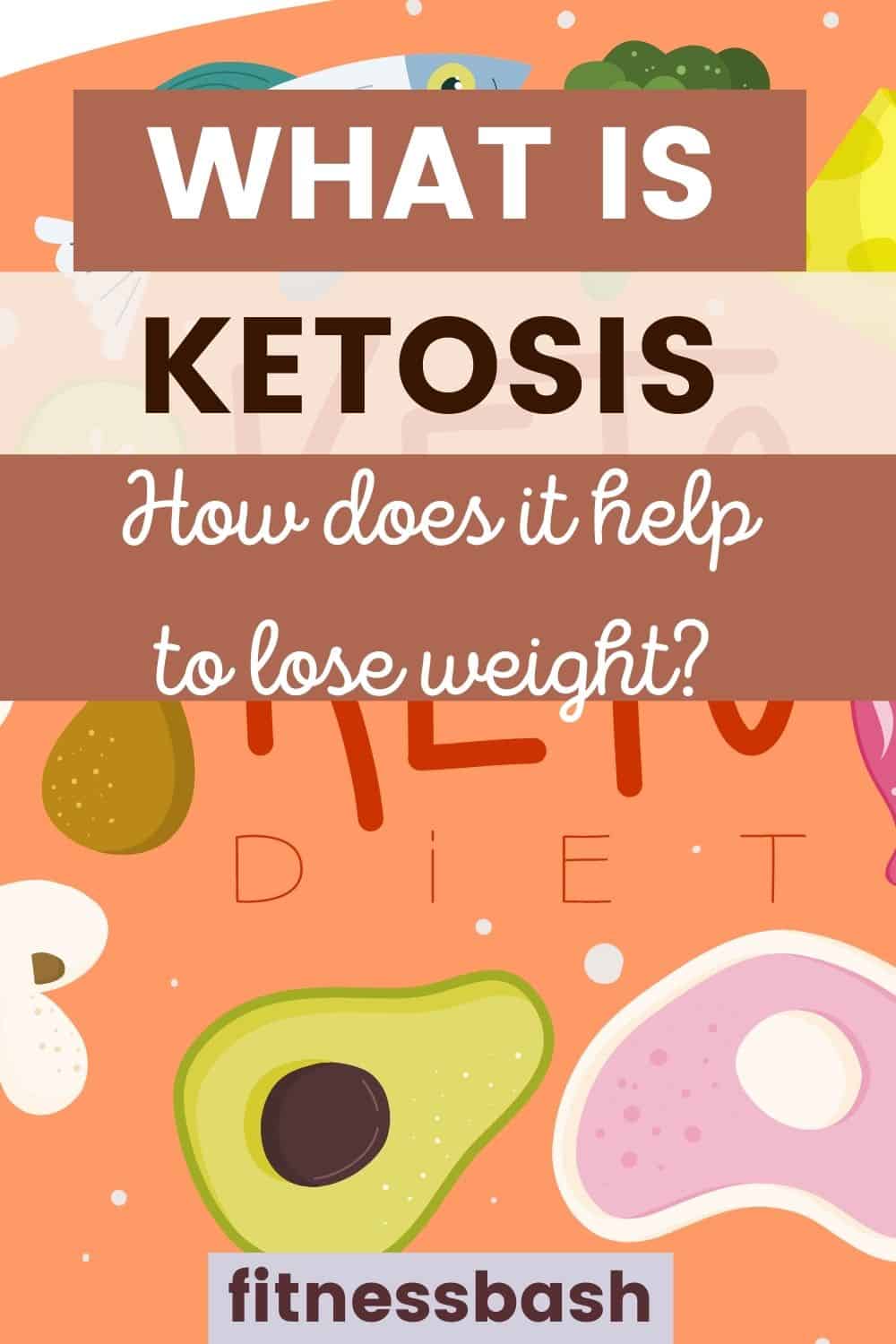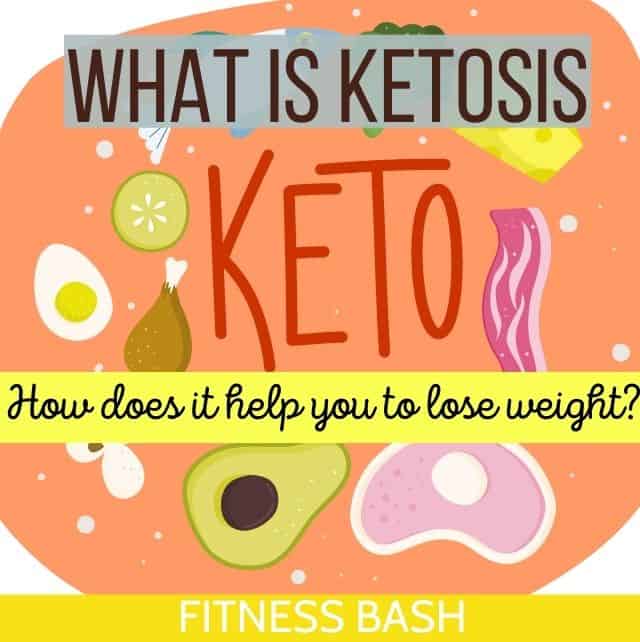KETOSIS INS AND OUTS
Ketosis is a natural process that occurs when your body doesn’t have enough glucose for energy.
The body starts using stored fat and breaking it down into ketone bodies, which are then used as the main source of fuel instead of glucose.

WHAT IS KETOSIS
Ketosis is a metabolic state in which the body uses ketones for energy instead of glucose.
This occurs when the body has burned through its glucose stores and there is no more available sugar to use as fuel. When this happens, the liver begins breaking down fat into ketones to use for energy.
Ketosis can be induced through a ketogenic diet, which is a high-fat, low-carbohydrate diet that causes the body to burn ketones for energy.
Ketosis can be caused by a low-carbohydrate diet or fasting.
HOW DO I GET INTO KETOSIS?
There are a few ways to get into ketosis.
You can follow a low-carbohydrate diet, or you can try fasting.
You can also use a ketone supplement to help you achieve ketosis more quickly.
-What should I eat while in ketosis?
There is no one-size-fits-all answer to this question, as the best diet for ketosis will vary depending on your individual health and fitness goals. However, some general tips that may help you when creating your own ketogenic diet plan include eating plenty of healthy fats, eating moderate amounts of protein, and limiting your carbohydrate intake.
When it comes to healthy fats, you should focus on including plenty of Omega-3 fatty acids in your diet. Good sources of Omega-3s include fish, nuts, and seeds.
You may also want to consider taking a fish oil supplement, as this can provide additional benefits for ketosis.
Protein is another important part of the ketogenic diet, as it is essential for maintaining muscle mass and function.
However, you should aim to eat only moderate amounts of protein, as too much can actually be counterproductive in terms of ketosis.
Good sources of protein include fish, poultry, eggs, and meat.
Check:
Finally, when it comes to carbohydrates, you should aim to keep your intake as low as possible. This means avoiding grains, sugars, and starches, and instead focusing on eating plenty of healthy vegetables and fruits.
Some good options for ketosis include leafy greens, berries, and other low-carb fruits.
If you are unsure about how to create your own ketogenic diet plan, then check the 7 days keto meal plan for beginners for an idea.
WHAT ARE THE FIRST SIGNS OF KETOSIS?
Ketosis is a condition that results when the body burns fat for energy instead of glucose. Ketones are produced when the liver breaks down fatty acids, and these ketones can be detected in the blood.
A person is said to be in ketosis when they have high levels of ketones in their blood.
There are several signs that a person is in ketosis, including weight loss, bad breath, and decreased appetite.
Check out:
-Testing for ketones
There are several ways to test for ketones.
The most common way is to use a blood meter to measure the level of ketones in the blood. These meters are available at most pharmacies.
Other methods of testing for ketones include urine strips and breath analyzers.
-Ketone levels
The level of ketones in the blood can vary depending on how long a person has been in ketosis.
A person who has been in ketosis for a few days may have lower levels of ketones than someone who has been in ketosis for weeks.
It is important to test for ketones regularly to ensure that you are in ketosis.
FAQ’S KETOSIS
Can I drink alcohol while in ketosis?
It is best to avoid drinking alcohol when you are in ketosis. Alcohol can interfere with the body’s ability to achieve and maintain ketosis.
However, you can try these 11 alcoholic drinks that are safe for a keto diet.
The idea of drinking alcoholic beverages while on the Keto diet seems rather preposterous – but don’t worry yourself with these thoughts for too long because if it tastes good then do whatever makes YOU happy (personally I’m partial to wine).
Can I eat carbs while in ketosis?
You can eat a small number of carbs while in ketosis, but it is best to keep your carb intake to a minimum.
There are a lot of misconceptions about what you can and cannot eat while in ketosis. Some people believe that you have to cut out all carbs in order to stay in ketosis, but this is not true. You can still enjoy healthy carbs while in ketosis as long as they are low-carb and fit into your daily carbohydrate allowance.
If you are just starting out on the keto diet, it is important to slowly introduce carbs into your diet so that your body can adjust to burning fat instead of glucose.
Start with a small number of healthy carbs and gradually increase your intake as you get closer to your daily carb limit. This will help ensure that you stay in ketosis and continue to lose weight.
There are a lot of great sources of healthy carbs that you can enjoy while on the keto diet. Some of my favorites include:
● Non-starchy vegetables like broccoli, cauliflower, and leafy greens
● Low-carb fruits like berries and melon
When it comes to carbs, it is important to choose healthy options that are low in sugar and high in fiber. These types of carbs will help you feel satisfied after eating and will not spike your blood sugar levels.
Eating too many carbs can cause you to lose the benefits of ketosis.
Is ketosis safe?
Ketosis is a safe and natural metabolic state. It has been used for centuries as a way to lose weight and improve health.
However, if you are pregnant or have a medical condition, it is best to consult with your doctor before trying ketosis.
My Take on Ketosis
When you are in ketosis, it is important to eat foods that are high in healthy fats and low in carbohydrates.
Good choices include olive oil, coconut oil, avocados, nuts, and seeds.
You can also eat meat, fish, and eggs, as well as non-starchy vegetables.
Being in ketosis can provide several health benefits, including weight loss, reduced inflammation, and improved heart health.
To stay in ketosis, follow a low-carbohydrate diet, avoid sugary foods, and exercise regularly.
Test your ketone levels regularly to ensure that you are in ketosis.
Related Ketosis:
- Guide for a Beginners Keto Diet
- 13 Mistakes that a Keto Beginner might do
- 15 Keto Recipes for Beginners
